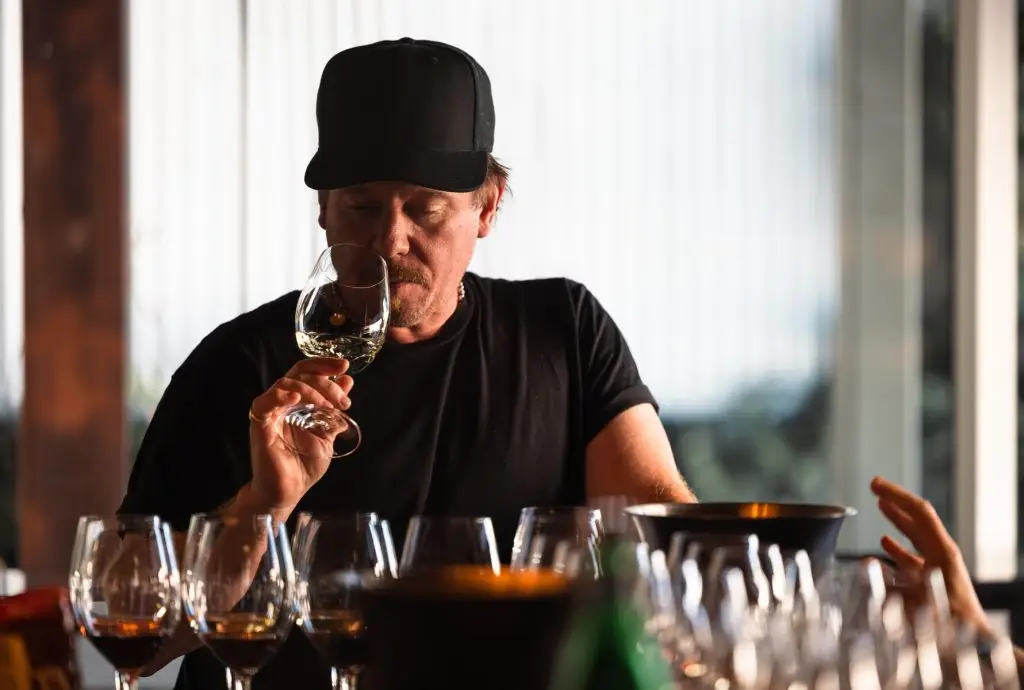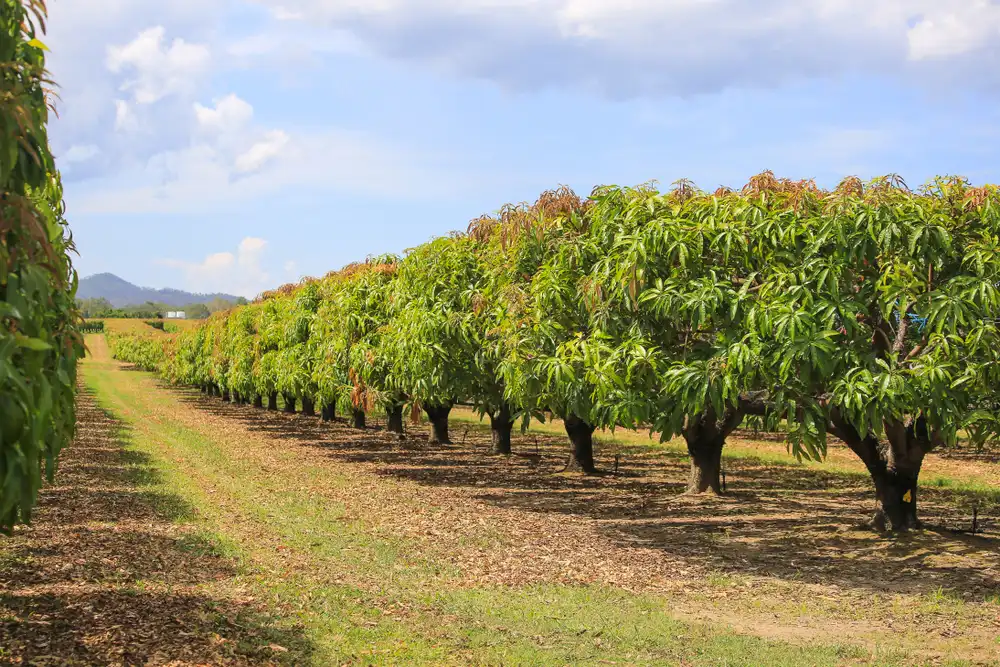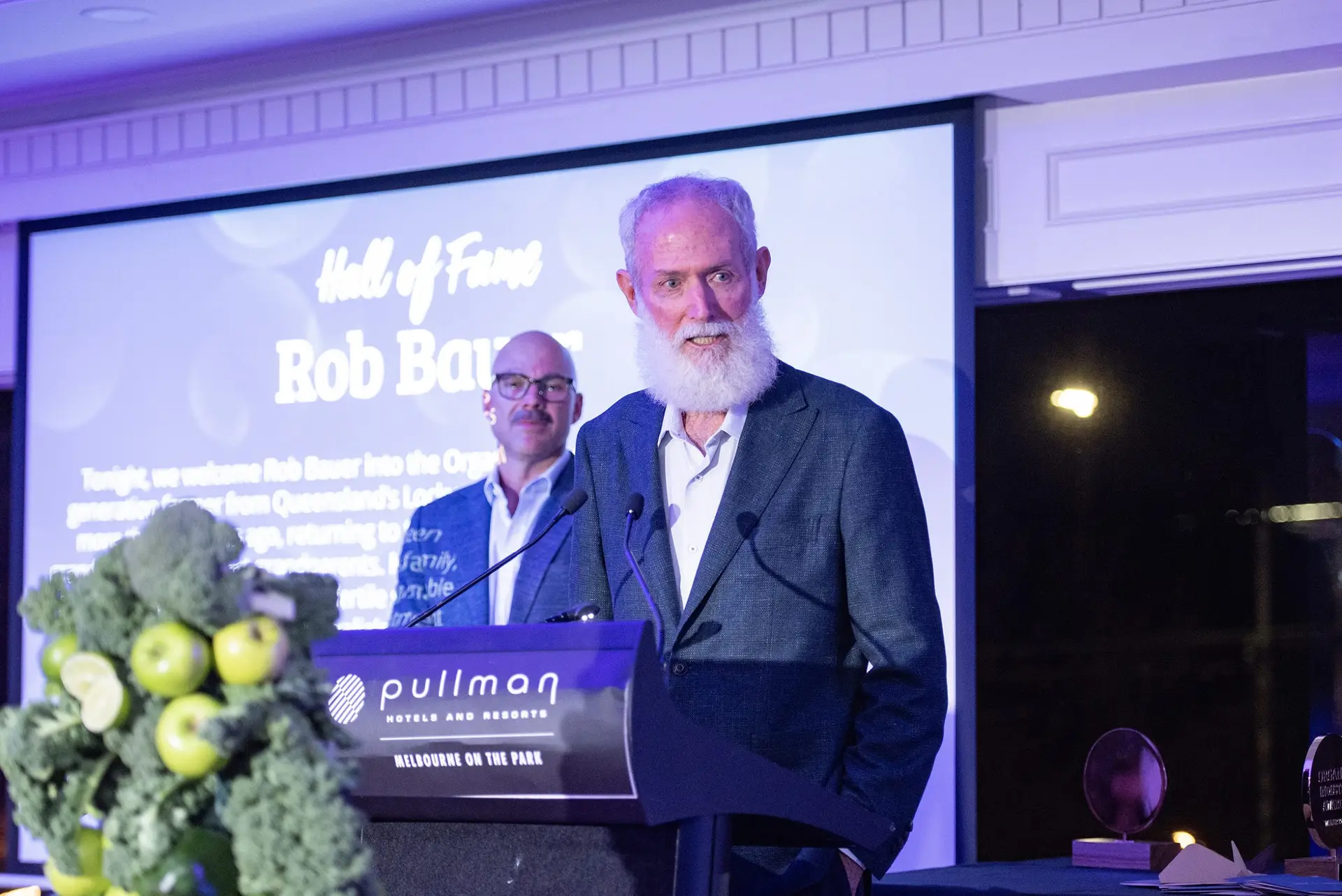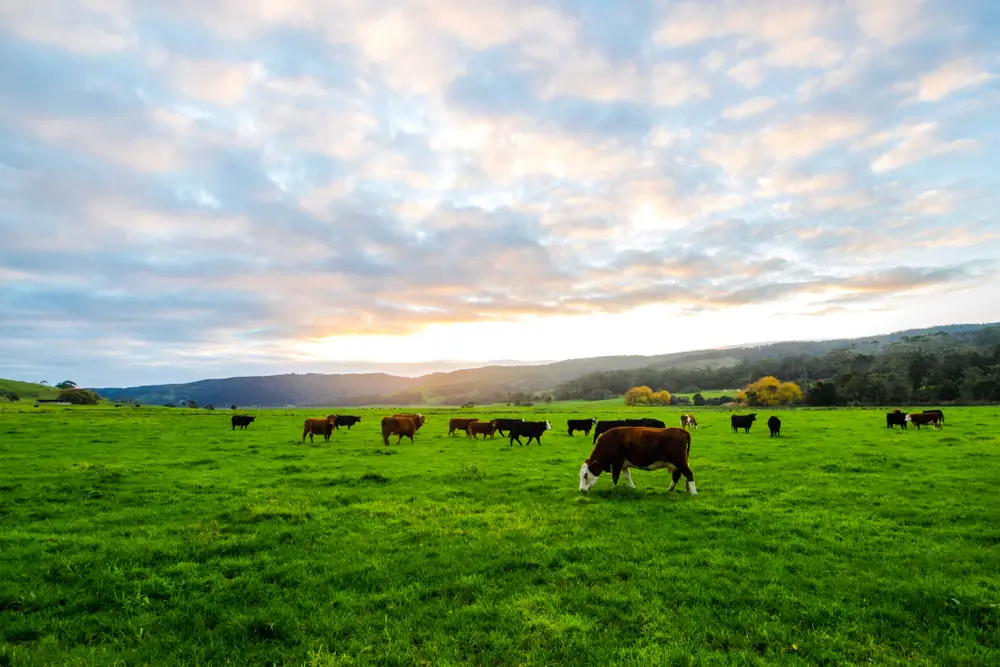If you want to sound more knowledgeable about wine, there aren’t many better people to learn from than Mike Bennie.
The renowned wine judge and writer recently delivered a private masterclass session for the recipient of the 2023 Australian Organic Wine Awards Associate Scholarship, as part of his role leading the expert judging panel for the awards.
Here, he pops the cork on what was covered in the masterclass, with tips on how you can improve your own wine judging skills.
- Drinkability
The classic wine judging system uses medals. I often suggest to people to think about medal ‘bandwidths’ rather than scores. A simple way to use this system is based on drinkability. If you wouldn’t voluntarily drink the wine in front of you then it doesn’t get a medal. If you’d happily drink a glass, then it’s in the bronze medal bandwidth. If you would drink a bottle of it, it’s probably in the silver medal zone. If you enjoy it so much you want to tell others about it, or serve it in your shop or restaurant, then that’s a gold medal wine.
- Complexity
This is a bit of an ephemeral concept, but when we judge on complexity, we’re considering all the details in a wine that add up to make it compelling for its aromas, textures, flavours and X-factor. The more layers and variety in these factors, the more complex the wine. Often the flavour of a complex wine can develop on the palate and in the bottle.
- Source
The foundation stones of my approach to wine are always provenance and process. Ideally that’s minimal intervention wine farmed to an organic standard with no additives, low or no sulphur, and a gentle handling of the wine making process. I want to taste wine that is as close to the source as possible. I find that wines with things like added tartaric acid, particularly when it’s post-fermentation, have a sort of bitey, acerbic finish. I also don’t like wines that use too much oak – it tends to interfere with the fruit. Often more commercial wines that travel around the world need additives to make them more consistent. It comes down to preference again – some people like that homogenised product but personally I like my wines to be more expressionist in nature than photo-realistic.
- Context
When someone asks what my favourite wine is, I always ask “for what time of day? What time of year? What am I eating with it? What’s the occasion?” For me it’s not about a doctrinal approach or a kind of ‘one-size-fits-all’ for what the best wines are. The circumstance of where you’re drinking wine really dictates what type of wine is best. We try to reflect that in the more esoteric categories of awards, such as ‘Best Park Wine’ at the 2023 Australian Organic Wine Awards, which evokes drinking outside in the sun – which is how a lot of Aussies consume wine.
- Personal taste
It’s important to consider your own personal preferences when judging, because ultimately wine is subjective and the best wines are those you want to drink the most. Don’t worry too much about the ‘rules’ or roadblocks that might make you think you’re not an expert – try to drink what you enjoy. In saying that, it takes skill to be able to identify interesting or complex wines that don’t fit your own tastes. For example, I don’t drink a lot of higher octane, fuller-flavoured concentrated red wines, but a diligent judge is able to set aside personal preference and take a more nuanced and considered approach to tasting.
- Discussion
Part of any wine professional’s skillset should be taking coherent notes. Any time you attend a tasting or wine show, you should bring a notebook or device to annotate everything you notice about each wine. These notes are essential to take part in the unique discourse around wine. While the conventional scoring system of wine judging can be an efficient way to judge, I find it doesn’t necessarily bring out the most insight. The wines truly come to life with rationalisation and coherent conversation, which comes from taking detailed notes.
- Language
Keeping on that theme, when we judge we try to use language that actually reflects how consumers interact with wine. Some wine awards simply reward grape varieties, but a Shiraz, for example, can be anything from a 16% alcohol, fully-oaked powerful wine right through to something that’s similar to Rose. So for me it’s much more about style of wine – light and fresh whites, medium-bodied reds, whites of power and presence – trying to align it more to how a drinker would describe it. If you’re handed a wine list with that sort of language, it’s a lot more approachable than one with simply grape varieties. Wine shows need to have a bit more consumer relevance rather than looking inwards and towards just the producers. It sounds a bit airy, but if you can really nail down the ‘feel’ of a wine and accurately describe it, that is a lot more valuable for consumers and for producers whose end goal is to sell more of that wine!
- Get tasting
The one thing I say to anyone thinking of getting into the wine industry is to attend as many events as you can, and taste as broadly, deeply and frequently as you can. I started out as a wine delivery driver, but that business wanted their ‘front-person’ to have some wine knowledge so I had to attend tastings twice a week and my skills grew from there. As you taste more wines you can start to catalogue them in your mind on where they sit in the matrix of drinkability, complexity and quality. There’s not a wine I consume that I don’t file away in my mind for its varied characteristics. That visceral pleasure of drinking is still there, but I’m always analytical. That’s why I try to not learn too much about coffee so I can just relax and enjoy it!
- Follow your passion
I started out working in law, but after doing that delivery job part time I decided wine was where my heart was. I began working in fine wine, looking after corporate clients, and just began to learn about this extraordinary world of wine, and all that it entails. It’s a mix of science, climate, geology, geography, culture, history – and it’s ever changing. And then at some point the latent journalist in me thought, ‘wow, there’s a job called wine writer, that sounds interesting’. And so I worked really, really hard and started to find work in magazines, and then general media. The rest snowballed with lots of hard work and diligence, and here I am!
Learn more about the 2023 Australian Organic Wine Awards here.
Media enquiries:
Tim Vetter
[email protected]
0439 681 793





